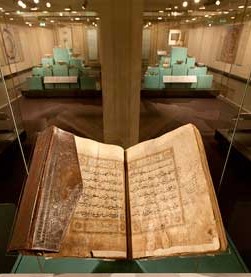 Islam was accepted peacefully in Oman, without coercion, during the Prophet’s lifetime. In the year 629 the Prophet Mohammed sent a letter to the two kings of Oman, Abd and Jaifar, sons of Julanda, living in Sohar, exhorting them to become his followers. Delegations were exchanged to study and consider this, and Abd and Jaifar became believers and converted freely.
Islam was accepted peacefully in Oman, without coercion, during the Prophet’s lifetime. In the year 629 the Prophet Mohammed sent a letter to the two kings of Oman, Abd and Jaifar, sons of Julanda, living in Sohar, exhorting them to become his followers. Delegations were exchanged to study and consider this, and Abd and Jaifar became believers and converted freely.
The two kings of Oman united the Arab tribes and expelled the Persians, and political power remained in the hands of the Al Julanda dynasty until Oman was annexed to Basra by the third caliph, Uthman bin Affan. It was the duty of the caliphs – first Abu Bakr, then Umar bin Al Khattab – to appoint the governors of the Muslims.
A bloody confrontation between the caliphs Ali and Muawiyah created a schism which led to the development the Sunni and Shiite schools of jurisprudence. Abd bin Al Julanda decided that Oman would not follow either of these schools, initially keeping Oman largely independent of Umayyad rule. Eventually the Al Julanda dynasty was forced to relocate to Africa due to military attacks attempting to coerce submission.
As a result, a center of political resistance to Umayyad hegemony was created in Oman, which over time evolved into the Ibadhi school of thought.


